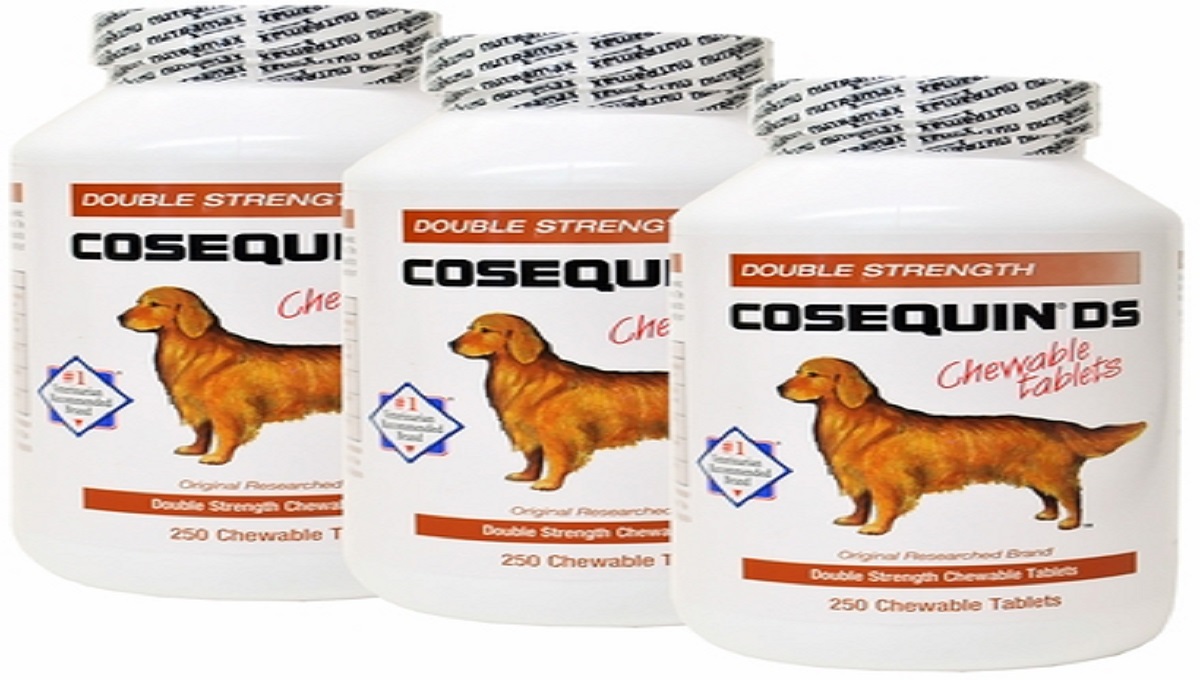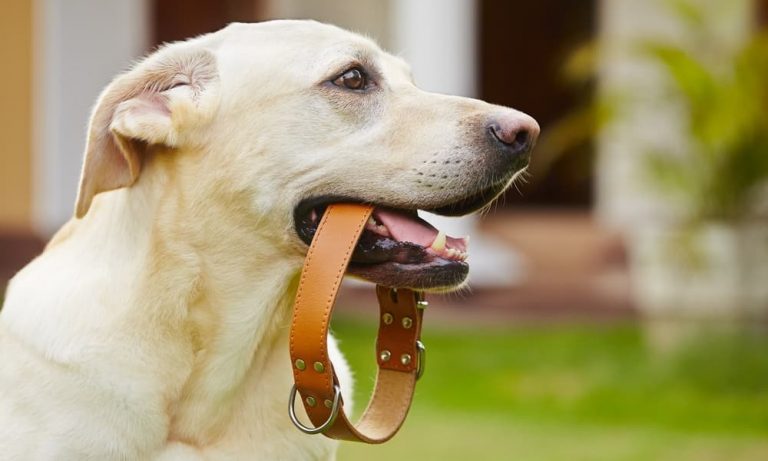Can Cosequin Cause Diarrhea in Dogs?
Cosequin, a joint supplement for dogs, can cause diarrhea in some cases. This is not a common side effect but can occur with sensitive individuals. Pet owners everywhere are always on the lookout for effective ways to support their dog’s health, particularly when it comes to joint health and mobility.
Cosequin has emerged as a go-to supplement, renowned for its safety and efficacy in supporting canine joint function.
Made with ingredients like glucosamine and chondroitin, this supplement aims to maintain cartilage health and ease joint pain. As with any dietary adjustment for your furry friend, there can be side effects.
Although rare, it’s important to monitor your dog after starting Cosequin and consult with a veterinarian if gastrointestinal disturbances like diarrhea emerge.
Tailoring dog care to each pet’s unique needs ensures they stay happy, healthy, and active throughout their lives.
Can Cosequin Cause Diarrhea In Dogs?
Pet owners often wonder about the side effects of health supplements. Cosequin, a popular joint supplement for dogs, is no different.
Sometimes, right after starting a new supplement like Cosequin, a dog might experience stomach upset or diarrhea.
Understanding why this happens and how serious it may be is important for the well-being of your furry friend.
What Are The Common Side Effects Of Cosequin?
Cosequin is generally known for being safe with minimal side effects. Few canines may exhibit symptoms like:
- Upset stomach
- Vomiting
- Diarrhea
- Lack of appetite
- Mild lethargy
Why Does Diarrhea Occur As A Side Effect Of Cosequin?
Diarrhea after taking Cosequin occurs due to the body’s response to a new substance. Dogs have sensitive digestive systems. Introducing new supplements can disrupt the balance.
It’s the body’s way to adapt. Ingredients might react with the dog’s system differently. Shellfish allergies, often unknown in dogs, can also cause a reaction as Cosequin contains shellfish derivatives.
Is Diarrhea A Serious Side Effect For Dogs Taking Cosequin?
Diarrhea is not typically a major concern when it comes to Cosequin. It’s usually short-lived. Keep an eye on your dog’s symptoms. Signs to watch for include:
| Duration of Diarrhea | Severity | Action to Take |
|---|---|---|
| Short-term | Mild | Monitor your dog |
| Persistent | Severe | Contact your vet |
Persistent diarrhea could lead to dehydration and malnutrition. If it continues beyond a couple of days, reach out to a veterinarian. A vet may suggest stopping the supplement or possibly a lower dose.
Remember, keeping tabs on any changes in your dog’s behavior or health is paramount.
Who should avoid giving Cosequin to their dogs?
Dog owners know Cosequin as a popular joint supplement. It helps with arthritis and joint wear. But, not all dogs should take Cosequin. Some dogs might react badly. In extreme cases, dogs can get diarrhea.
Dogs With Existing Digestive Issues
If a dog already has stomach problems, Cosequin might make it worse. Dogs with sensitive stomachs or digestive conditions should avoid it. Their owners should talk to a vet first. They can suggest other ways to help with joint pain.
Dogs On Specific Medications
Some drugs don’t mix well with Cosequin. Dogs on certain medications, especially for blood thinning or diabetes, should be cautious. The combo can lead to side effects or reduce drug effectiveness.
Here’s a list of some meds to watch out for:
- Anticoagulants: Warfarin, heparin
- NSAIDs: Aspirin, ibuprofen
- Diabetes medication: Insulin
Dogs With Allergies
Dogs can be allergic to anything, just like humans. Some dogs might be allergic to ingredients in Cosequin. If a dog has known allergies, its owner needs to check the Cosequin label. Any strange signs after taking it means a trip to the vet.
Common allergenic ingredients might be:
| Ingredients | Potential Allergens |
|---|---|
| Glucosamine | Shellfish |
| Chondroitin | Beef products |
| MSM | Sulfur |
How To Prevent Diarrhea In Dogs Taking Cosequin
Optimal joint health is vital for a dog’s active lifestyle. Cosequin supplements aim to support joint function, but sometimes, they may lead to diarrhea.
To maintain your furry friend’s digestive health while they receive this joint support, preventive measures are key. Let’s explore steps to prevent this side effect.
Talk To A Veterinarian Before Starting Cosequin
Before introducing any new supplement to your dog’s diet, consult a vet. They can confirm whether Cosequin is the best choice for your pet’s needs.
A vet can also rule out possible allergies or interactions with current medications.
Start With A Small Dose
When beginning Cosequin, introduce it slowly to your dog’s routine. Start with a lower dose than recommended.
This helps your dog’s system adjust without overwhelming it, reducing the risk of digestive upset.
Wait And Monitor Your Dog’s Reactions
After the first dose, observe your dog. Look out for any signs of discomfort or changes in stool consistency. If you notice diarrhea, consult your vet promptly to discuss the next steps.
Consequently, following these simple measures can make a significant difference in how your dog responds to Cosequin. Proactive care ensures your dog enjoys the benefits of healthier joints without the discomfort of diarrhea.
Conclusion
Summing up, Cosequin is generally safe for dogs but may lead to diarrhea in some cases. Always monitor your pet’s response to new supplements.
Consult your vet with any concerns regarding your dog’s digestive health. Remember, each dog reacts differently, and their well-being is paramount.
Frequently Asked Questions
Can Cosequin Cause Loose Stools In Dogs?
Cosequin can occasionally cause mild gastrointestinal issues in dogs, including loose stools. If symptoms persist, consult your veterinarian.
Can Dogs Get Diarrhea From Glucosamine?
Yes, some dogs may experience diarrhea as a side effect of taking glucosamine supplements. Always consult a vet before starting any new supplement for your dog.
What Happens If A Dog Gets Too Much Cosequin?
Too much Cosequin in dogs can cause an upset stomach, diarrhea, or more serious side effects. Always follow your veterinarian’s recommended dosage.
How Long Should A Dog Take Cosequin?
Dogs typically take Cosequin for several weeks to months, depending on the vet’s advice and the dog’s response to the supplement. Always follow the veterinarian’s recommended duration for best results.
Is Cosequin Safe For Canine Digestion?
Cosequin is generally considered safe for dogs and is vet-recommended to support joint health, but like any supplement, it may cause gastrointestinal upset in some animals.





